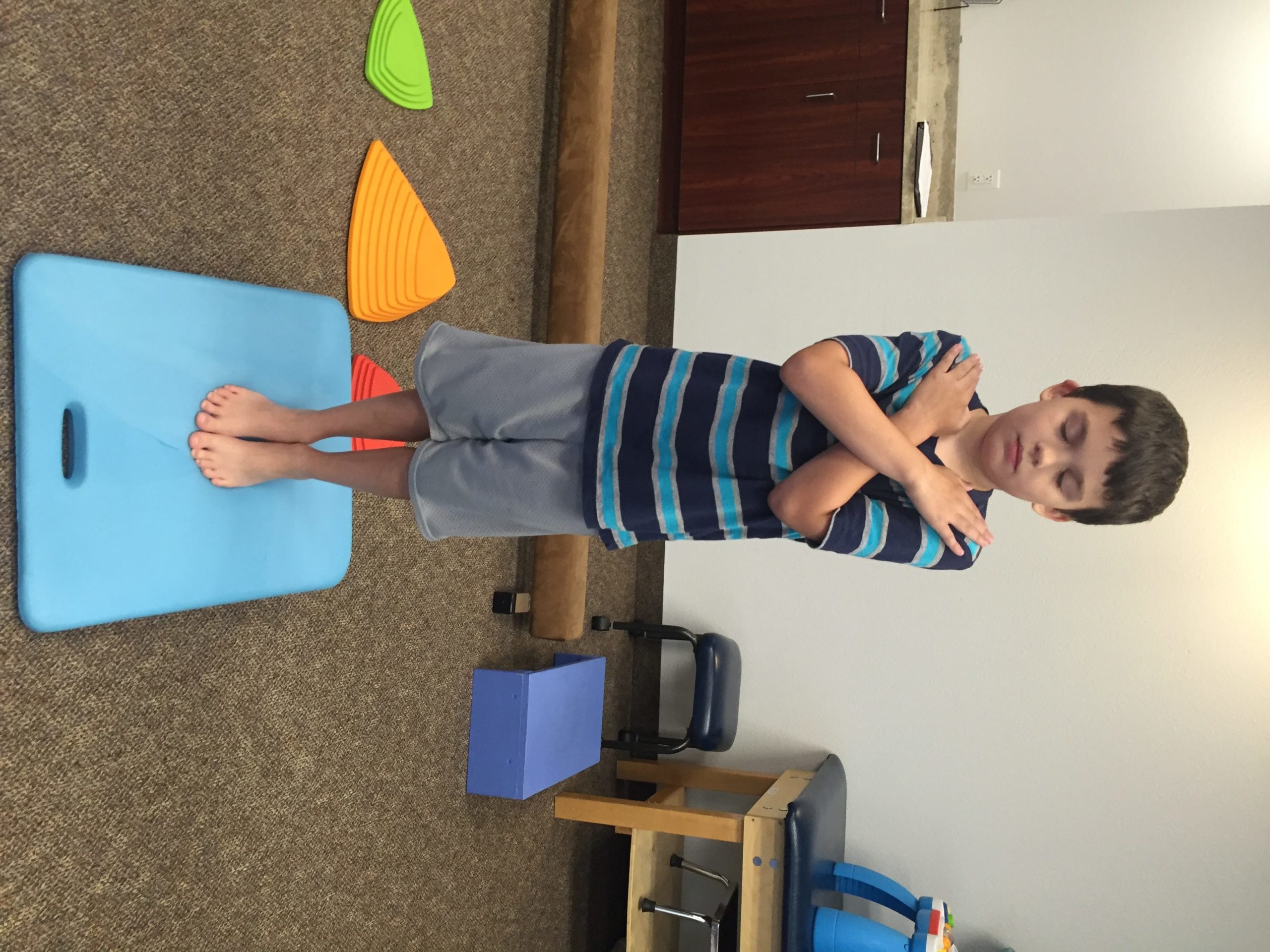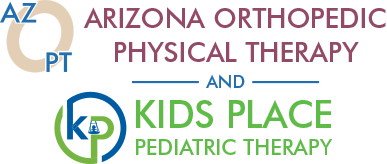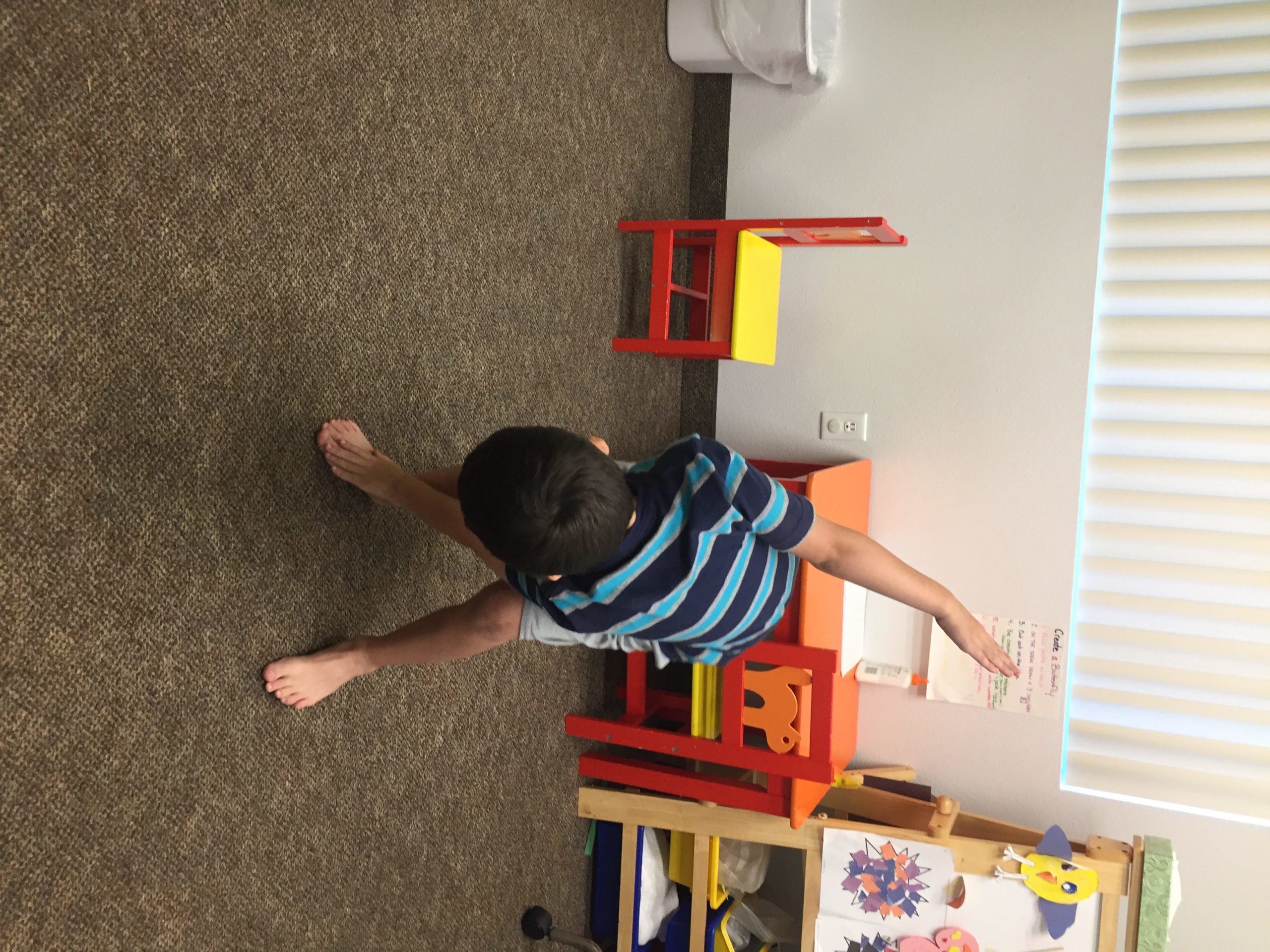How Does the Vestibular System Affect My Child?
By Brittany deRoche, DPT
Kids Place West Pediatric Physical Therapist
The vestibular system is a small group of organs located in our inner ear which is responsible for helping our body figure out where it is in space. The vestibular system detects movement (linear and angular) of our head, telling us if we are going to the right/left/up/down/spinning. The vestibular system also assists with gaze stability, which is our ability to keep objects in focus while we move our head. We also utilize the vestibular system to assist with our balance, postural control, and muscle tone.
As adults we may notice problems with our vestibular system due to symptoms including dizziness, vertigo, difficulty keeping objects in focus while moving our head, and due to a change in our balance. Children with vestibular concerns may not realize that they are dizzy or that movement of letters when reading is atypical if they have always experienced these symptoms. This can make diagnosing vestibular concerns hard for children.
You may consider a potential concern if your child experiences some or all of the following symptoms:
- Becomes easily car/movement sick
- Poor tolerance to spinning or swinging
- Constantly seeking spinning or swinging
- Child was or is a late walker (after 16mo)
- Difficulty with reading
- Complaints of headache or fatigue after reading
- Poor balance, especially in the dark or non stable/flat surfaces
- Difficulty or inability to walk and change head position (looking up or down or to the left or to the right) without stopping, slowing down, or loss of balance.
- Child walks on toe walks greater than 25% of the time
How can physical and occupational therapy help?
Following an evaluation to determine what a child’s needs/or impairments are, therapy may focus in a v ariety of areas. Activities may include improving tolerance to swinging, spinning, or jumping. Balance training may be addressed using a variety of surfaces with non-moving and moving components. Gaze stability may be addressed by various types of tracking activities with and without head movements.
ariety of areas. Activities may include improving tolerance to swinging, spinning, or jumping. Balance training may be addressed using a variety of surfaces with non-moving and moving components. Gaze stability may be addressed by various types of tracking activities with and without head movements.
Is further treatment required?
If a patient presents with significant concerns that require services in addition to physical and/or occupational therapy, you may be referred out to a specialist.
If you child demonstrates some of the above concerns or you have further concerns, talk to your doctor or call Kids Place for an evaluation. Physical and occupational therapists are able to evaluate and treat various vestibular concerns to improve tolerance to spinning, improve oculomotor skills (eye gaze/stability/tracking), and balance.







